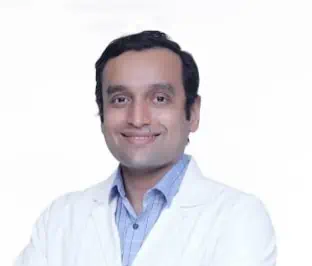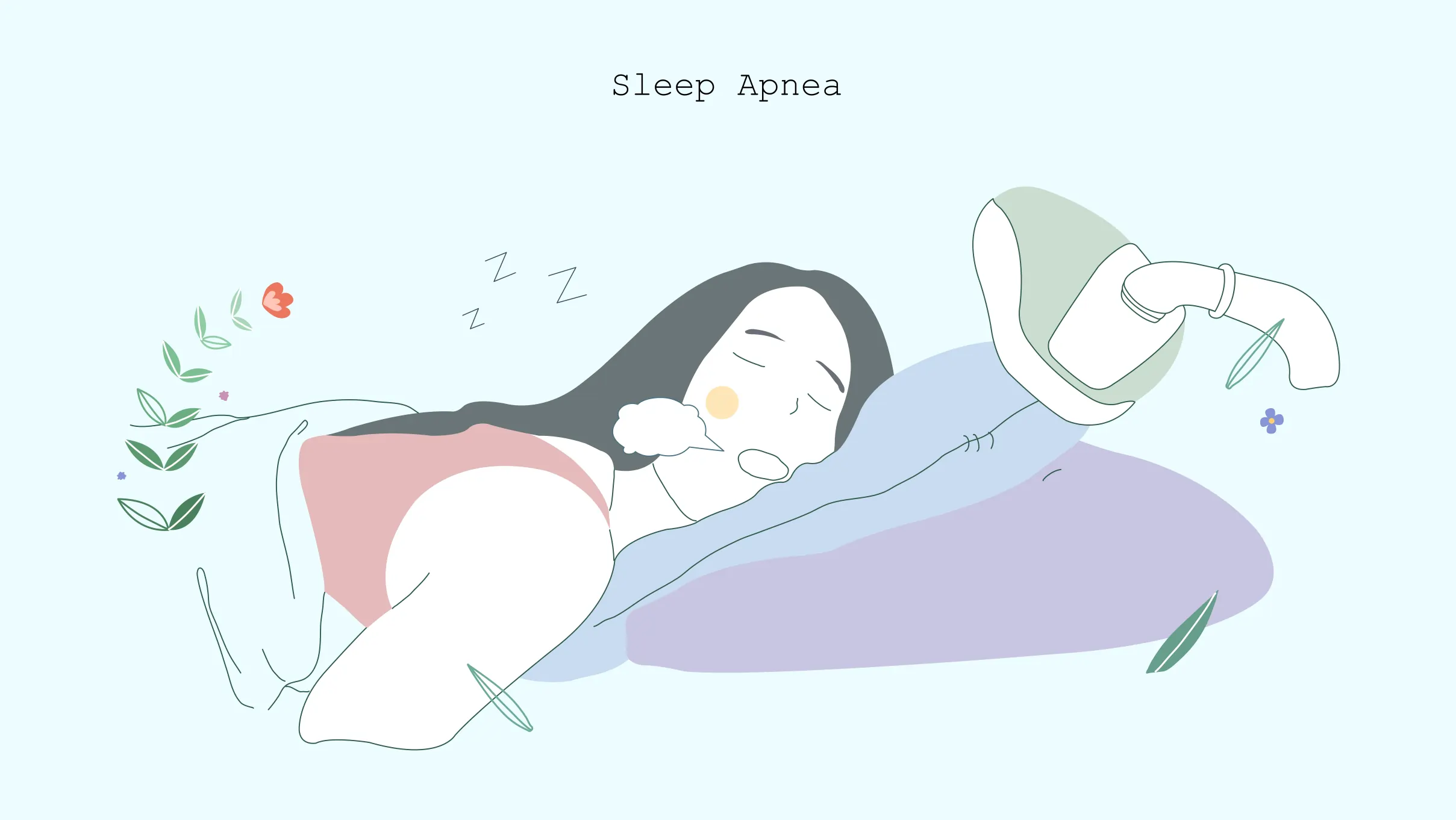Sleep Apnea: Everything You Need to Know
Written by

Medical reviewed by


Sleep apnea is a medical condition when your breathing starts and frequently stops while you are in a deep slumber. Categorised as a dangerous sleep disorder, you may wake up gasping for breath. Leaving it untreated can lead to severe ailments, including high blood pressure, heart problems, and excessive daytime sleepiness. Today, Sleep Guides India brings you everything you need to know about sleep apnea. Read on!
What Is Sleep Apnea?
Sleep apnea is a potentially harmful medical condition where your breathing repeatedly starts and stops throughout your sleep. This is what is sleep apnea. One of the main symptoms of sleep apnea can be loud snoring and experiencing fatigue in the daytime. These breathing lapses can wake you up with a choking sensation or leave you gasping for air. There are mainly three types of sleep apnea;
- Obstructive sleep apnea
- Central sleep apnea
- Complex sleep apnea syndrome
Obstructive Sleep Apnea
Obstructive sleep apnea (OSA) is when you experience a blockage in the back of your throat that obstructs the airways and causes loud snoring. The most common response in people suffering from OSA is that they may wake up gasping while making choking noises.
Central Sleep Apnea
In central sleep apnea (CSA), the communication between the brain and muscles responsible for breathing is disrupted. Therefore, people suffering from CSA experience shallow breathing with frequent pauses during their slumber.
Complex sleep apnea
Complex sleep apnea is a condition where you experience a combination of both OSA and CSA.
What causes sleep apnea?
Several ailments can obstruct the airways.
- Muscles and tissues in the mouth and throat become relaxed
- Nasal congestion
- Underlying medical disorder
- Fat storage near the airways
- Thick throat tissues
These factors can result from genetics, colds, allergies, thyroid problems, obesity, heart or liver failure, and swollen or large tonsils.
Symptoms of Sleep Apnea
Sometimes, you may notice the signs indicating both OSA and CSA, making it harder for you to understand the type of sleep apnea you suffer from. However, the most common sleep apnea symptoms are;
- Snoring loudly
- Your partner may notice that you have stopped breathing for a while during your sleep
- Waking up gasping for air
- Waking up with a dry mouth
- Insomnia
- Experiencing excessive daytime sleepiness
- Frequent headaches
- Unable to concentrate
- Feeling irritated
Sleep Apnea in Children
Paediatric sleep apnea is when children go through the symptoms of sleep apnea due to narrowing or blockage of the upper airways. However, there are differences between adult and paediatric sleep apnea. Adults experience excessive daytime sleepiness as a symptom, whereas children display behavioural problems.
In children, sleep apnea usually occurs due to large tonsils or adenoids. This ailment can be combated with timely diagnosis and treatment, and adverse effects on growth and cognitive behaviour can be averted.
How Is Sleep Apnea Diagnosed?
If you experience sleep apnea symptoms, you must visit a doctor. There can be several steps they opt for to diagnose sleep apnea.
- Health History and Physical Exam
First, your doctor will ask you to go through all your symptoms and check your overall health along with your medical history. It will help them look for any signs of sleep apnea and see if you share any risk factors. Your doctor may also order a few tests to confirm the same.
- Sleep Study
Your doctor may ask you to conduct simple tests at home to confirm the condition. These tests can include checking your heart rate, breathing patterns, and more. If the results from the at-home tests are abnormal, further sleep testing may be prescribed.
Treatments for Sleep Apnea
There are several sleep apnea treatments available as per your condition. While these treatment methods may not be able to cure sleep apnea completely, they help you manage the symptoms to a great extent. Some of these treatment methods include;
- Devices managing air pressure and ventilation devices
- Oral appliances
- Nerve stimulation device
- Medications
- Surgery
- Weight loss
- Treating the underlying medical condition
Complications of Sleep Apnea
While sleep apnea can disrupt your sleep cycle and lead to poor-quality sleep, it can also be dangerous when left untreated. Some of the complications of sleep apnea include;
Daytime fatigue
Sleep apnea may wake you up frequently. Hence, you may end up experiencing poor-sleep quality, which can cause daytime sleepiness and fatigue.
High blood pressure or heart problems
Sleep apnea causes a sudden drop in blood oxygen levels, pressuring the heart and elevating blood pressure levels. OSA also puts you at risk of stroke and heart attack.
Type 2 diabetes
People suffering from sleep apnea are at risk of insulin resistance and type-2 diabetes.
Metabolic syndrome
Obesity, blood pressure, and diabetes are also risks of sleep apnea, putting you at higher risk of heart disease.
Issues with medications and surgery
People suffering from OSA may face problems with some medications or even surgery as they have to lie under the influence of anaesthesia, which may be unsafe.
Liver complications
People with sleep apnea can have liver scarring and abnormal liver function test.
Treatments for Sleep Apnea
There are several sleep apnea treatments available as per your condition. While these treatment methods may not be able to cure sleep apnea completely, they help you manage the symptoms to a great extent. Some of these treatment methods include;
Non Medical Remedies:
Non-medical remedies for sleep apnea include avoiding alcohol and sedatives before bed, losing weight, sleeping on your side, elevating the head of your bed, and practising good sleep hygiene, such as establishing a consistent sleep schedule and avoiding electronic devices before bed.
Devices With Adaptive Ventilation and Positive Airway Pressure:
Devices such as APAP and BiPAP machines, work by delivering a continuous flow of air pressure to keep the airway open during sleep. These devices automatically adjust the pressure levels based on the patient’s breathing patterns, providing customised treatment for sleep apnea.
Oral Appliances:
Oral appliances help with sleep apnea by repositioning the tongue and jaw by keeping the airway open while asleep. These devices are designed to be worn during sleep and work as an effective treatment option for mild to moderate sleep apnea. These even work as an alternative to continuous positive airway pressure (CPAP) therapy.
Nerve Stimulants:
These help with sleep apnea by activating the hypoglossal nerve, which controls the muscles in the tongue and improves airflow during sleep. These devices are implanted under the skin and are controlled using a remote to activate the nerve stimulation during sleep.
Surgery:
Surgery helps remove excess tissue in the throat or helps correct the structural abnormalities that may be blocking the airway. Surgery may be considered for people with severe sleep apnea who have not responded to other treatments or who cannot tolerate continuous positive airway pressure (CPAP) therapy.
Medication (Only for Central Sleep Apnea):
Medications for central sleep apnea help by stimulating breathing and controlling the underlying medical condition that may be causing the apnea, such as heart failure or opioid use. However, these medications are not commonly used as a standalone treatment for sleep apnea, and other treatment options, such as continuous positive airway pressure (CPAP) therapy, are typically recommended.
When to See A Doctor?
It is essential to speak with your doctor If you experience any of the above-stated sleep apnea symptoms. You must also consult your doctor if you are going through frequent daytime sleepiness.
Sleep apnea is a severe condition, and immediate treatment is crucial to managing the symptoms. Otherwise, it will not only disrupt your sleep but can also hamper your health. In some cases, losing weight can be beneficial.
FAQs
What is the main cause of sleep apnea?
Some of the main causes of sleep apnea can be obesity, genetics or underlying medical conditions.
What are the warning signs of sleep apnea?
Some of the main warning signs of sleep apnea are;
- Loud snoring
- Waking us gasping for breath
- Some of the main warning signs of sleep apnea are;
- Loud snoring
- Waking up gasping for breath
- Experiencing dry mouth every morning
- If you share the bed with a partner, they may also notice your breathing stopping and starting while you are asleep.
If you share the bed with a partner, they may also notice your breathing stopping and starting while you are asleep.
Can sleep apnea be cured?
In some cases, where obesity is the reason behind sleep apnea, losing a few kilos can resolve sleep apnea.
At what age can you develop sleep apnea?
Anyone at any age can develop sleep apnea.
What can or can’t I eat with Sleep Apnea?
It is best to avoid foods that are high in saturated fats, like steak, pork, bacon, lamb and sausage, as they can lead to cardiovascular problems and inflammation. It is a big risk factor if you have sleep apnea. Instead, eat whole grains, low-fat dairy products, fruits, and vegetables.
Can OSA be dangerous?
The more severe the OSA, greater is the risk of coronary artery disease, strokes, heart failure and heart attacks. So, consult your doctor as soon as possible.
people like this article
Written by

Medical reviewed by








